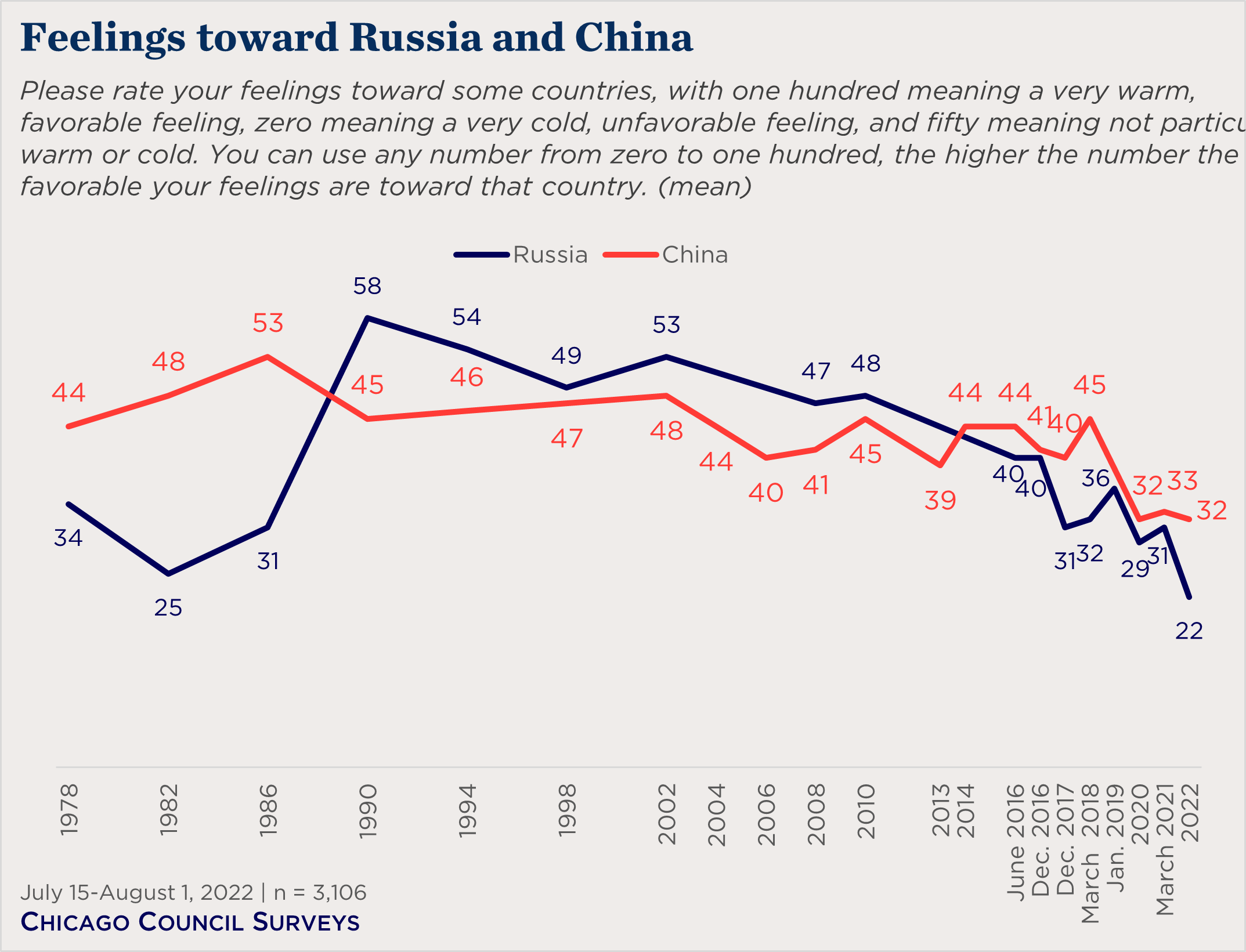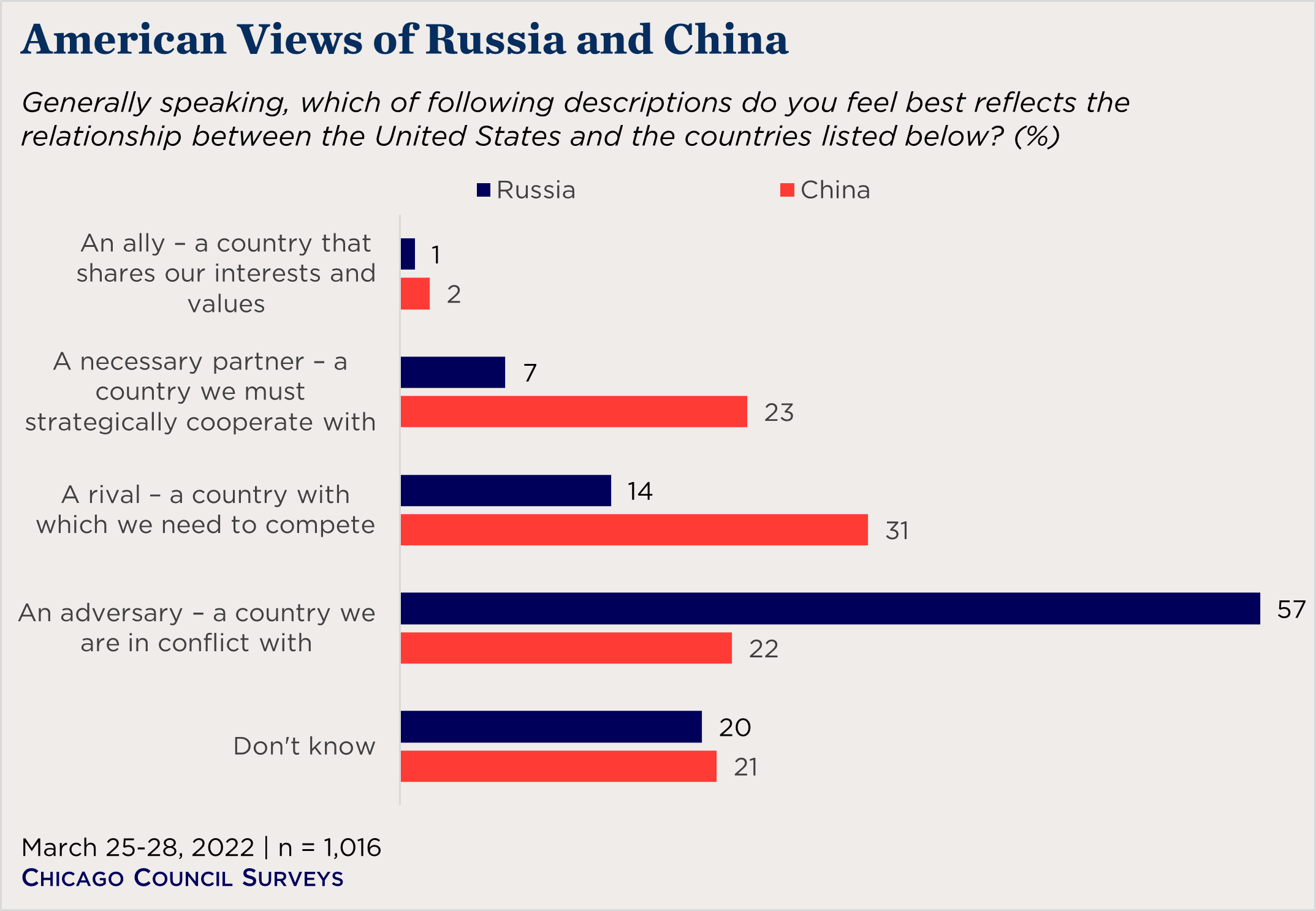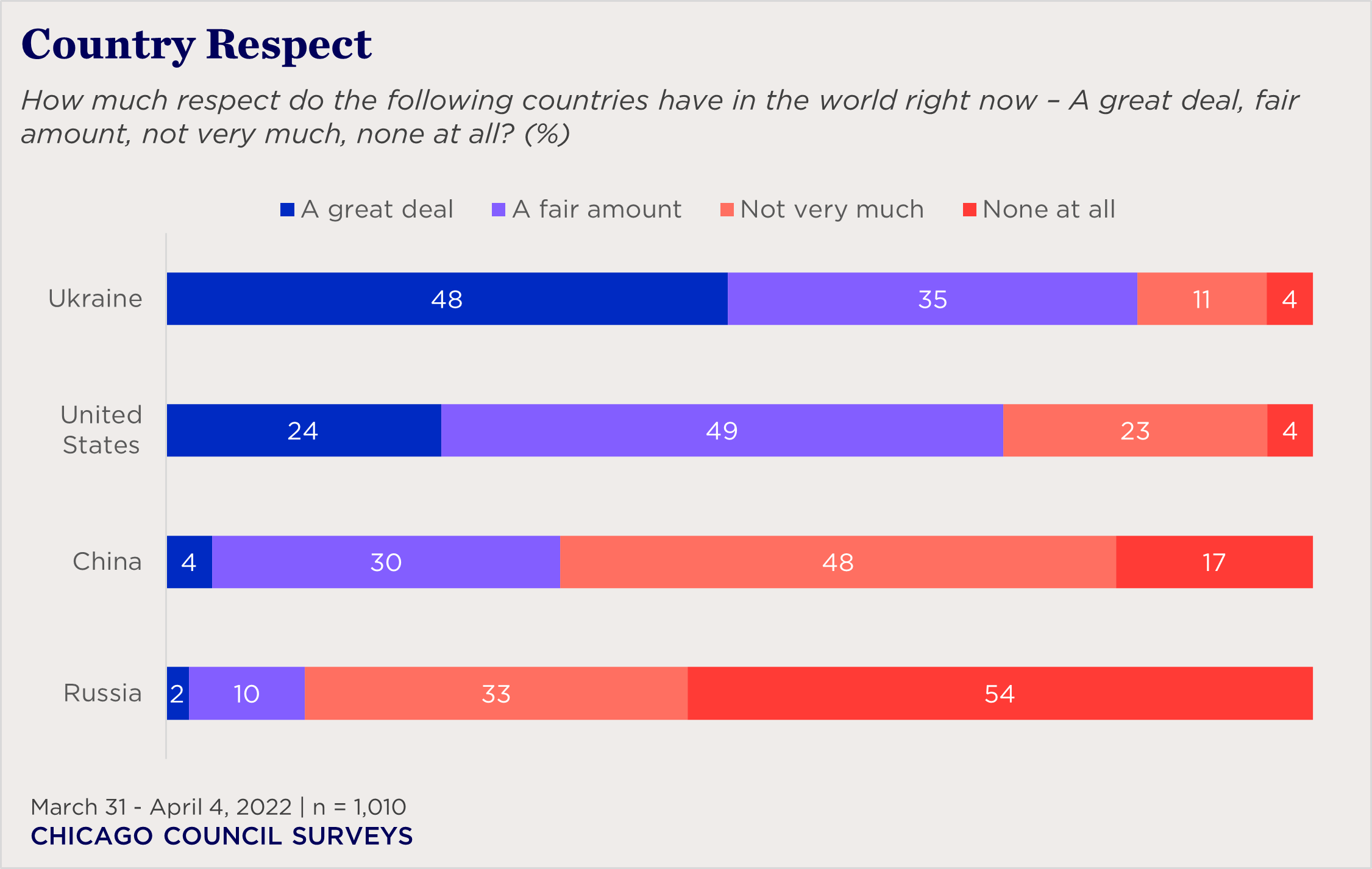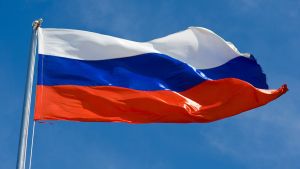Americans More Threatened by Russia Than China

American feelings toward Russia and China are lower than during the Cold War, Council polling shows.
Key Findings
- On a 0-100 scale, American feelings toward both Russia (22) and China (32) are at the lowest levels ever recorded in Chicago Council Surveys, even during the Cold War.
- Majorities view Russia as an adversary (57%) and China as either an adversary (22%) or rival (31%).
- Only one third of Americans believe China is respected in the world (34%), and just 12 percent say the same about Russia.
- Few Americans view Xi Jinping (10%) or Vladimir Putin (4%) favorably.
Views of Russia, China at Record Lows
Chinese President Xi Jinping and Russian President Vladimir Putin are set to meet this week in Uzbekistan, the first time the two leaders have met since Russia invaded Ukraine. They could announce plans to deepen ties in defiance of American sanctions on Moscow and tensions with Beijing. US relations with both countries are incredibly strained, and chilly feelings at the official level are reflected in US public opinion. Americans distrust both countries and have unfavorable views of both leaders.
When asked to rate their feelings toward various countries on a 0 to 100 scale, where 0 is the coldest possible rating and 100 is the warmest possible, Americans give frosty ratings for both China and Russia. In July 2022, Americans give China an average rating of 32, and Russia an icy 22. Americans felt warmest toward China in 1986 (with an average of 53) after President Reagan visited the country in 1984, and warmest toward Russia in 1990 (average reading of 58), after the fall of the Berlin Wall.

Republicans are more unfavorable toward China than Democrats (and average of 24 to Democrats 36). Both are equally unfavorable toward Russia (each rating it an average of 19).
More Americans See Russia as a Threat and Adversary than China
Overall, more Americans view Russia’s territorial ambitions as more of a critical threat to the United States (60%) than China’s territorial ambitions (52%), but there are significant partisan differences. Democrats are more concerned about Russia’s territorial ambitions (68% vs. 56% Republicans), and Republicans are more concerned about China’s ambitions (62% vs. 50% Democrats).
According to a March 2022 Chicago Council survey, a majority of Americans consider Russia an adversary (57%, up from 39% in 2021), described as “a country we are in conflict with,” and 14 percent say it is a rival, or “a country with which we need to compete.” Relative to ratings that Russia receives, Americans consider China more of a frenemy: 22 percent consider the country an adversary, while 31 percent say it is a rival, and 23 percent say it is a necessary partner (in 2021, 32% saw China as a rival, 29% as an enemy, 21% as a partner).

Similar to partisan differences on threat perceptions, Republicans (35%) view China as more of an adversary than Democrats (15%). On Russia, Democrats (65%) are more inclined than Republicans (58%) to view it as an adversary.
Americans Don’t Think China and Russia are Globally Respected
Overall, more Americans view Russia’s territorial ambitions as more of a critical threat to the United States (60%) than China’s territorial ambitions (52%), but there are significant partisan differences. Democrats are more concerned about Russia’s territorial ambitions (68% vs. 56% Republicans), and Republicans are more concerned about China’s ambitions (62% vs. 50% Democrats).
Nearly three-quarters of Americans say the United States is well respected in the world right now (73%), and an even larger majority believe Ukraine garners respect from the world (83%). But only one-third believe China is respected (34%), and just 12 percent say the same about Russia. Democrats are more likely than Republicans to say that the United States is respected (85% vs. 67% of Republicans, Ukraine is respected (86% vs. 81%); and China is respected (34% vs. 23%). Republicans are only slightly more likely than Democrats to say that Russia is respected (12% vs. 9% of Democrats).
This sense of disrespect transfers over to the country’s leaders, with no more than one in ten expressing a favorable view of Xi (10%) or Putin (4%), which is similar for both Republicans and Democrats.



Methodology
This analysis is based on data from the 2022 Chicago Council Survey of the American public on foreign policy, a project of the Lester Crown Center on US Foreign Policy. The 2022 Chicago Council Survey was conducted July 15–August 1, 2022, by Ipsos using its large-scale nationwide online research panel, KnowledgePanel, in both English and Spanish among a weighted national sample of 3,106 adults 18 or older living in all 50 US states and the District of Columbia. The margin of sampling error for the full sample is +/- 1.8 percentage points. The margin of error is higher for partisan subgroups or for partial-sample items.
Partisan identification is based on how respondents answered a standard partisan self-identification question: “Generally speaking, do you think of yourself as a Republican, a Democrat, an Independent, or what?”
The 2022 Chicago Council Survey is made possible by the generous support of the Crown family and the Korea Foundation.
Additional data in this analysis come from two Chicago Council Surveys conducted in March 2022. The first was conducted March 25–28, 2022, by Ipsos using its large-scale nationwide online research panel, KnowledgePanel, among a weighted national sample of 1,016 adults, 18 or older, living in all 50 states and the District of Columbia. The margin of sampling error for the full sample is +/- 3.0 percentage points and is higher for subgroups or partial-sample items.
The second is an AmeriSpeak® survey conducted March 31–April 4 with a sample size of 1,010. Funded and operated by NORC at the University of Chicago, AmeriSpeak® is a probability-based panel designed to be representative of the US household population. Randomly selected US households are sampled using area probability and address-based sampling, with a known, non-zero probability of selection from the NORC National Sample Frame.

Related Content
 Public Opinion
Public Opinion
If the United States and China are competing over global public opinion, who’s winning, and where?
 Public Opinion
Public Opinion
The majority of countries polled in a recent 53-nation study hold negative views of Russia following its invasion of Ukraine.
 Public Opinion
Public Opinion
Younger Americans are more confident in US power vis-a-vis China and are more likely to oppose restrictions on scientific and educational exchanges between the two.
